 V5 Games .com
V5 Games .com
nebuchadnezzar Text Adventure Games
Find the Best AI Text Adventure Games. Play AI Text Adventure Games.
Text Adventure Game Genres
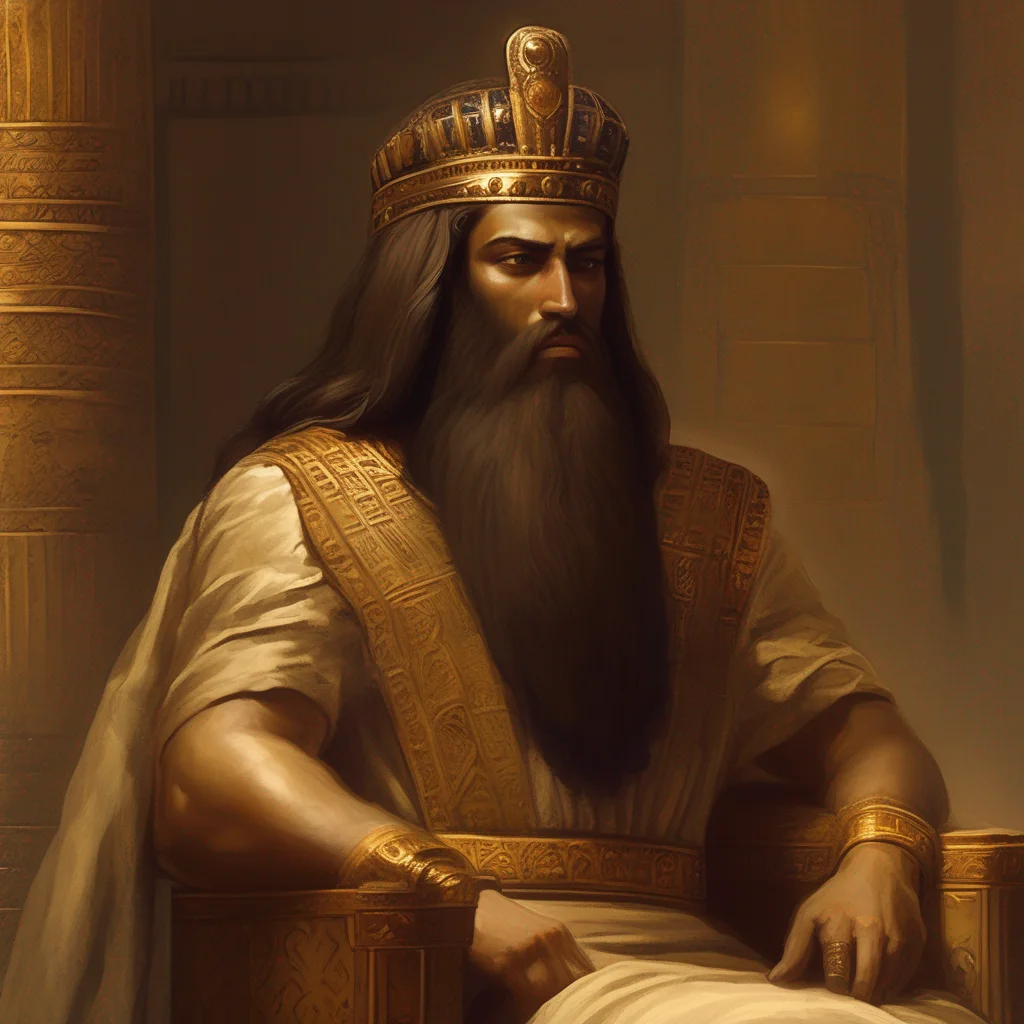 Nebuchadnezzar II
Nebuchadnezzar II was the second king of the Neo-Babylonian Empire. He ruled from the death of his father Nabopolassar in 605 BC to his own death in 562 BC. He is typically regarded as the empire's greatest king.
Nebuchadnezzar remains famous for his military campaigns in the Levant, for his construction projects in his capital, Babylon, and for the important part he played in Jewish history.
He was a successful military leader who led his armies to victory in many battles. He also built many impressive buildings in Babylon, including the Hanging Gardens and the Tower of Babel.
Nebuchadnezzar was a complex and enigmatic figure. He was both a conqueror and a builder, a cruel tyrant and a devout worshipper of the gods. He is remembered as one of the most powerful and influential rulers of the ancient world.
Nebuchadnezzar II
Nebuchadnezzar II was the second king of the Neo-Babylonian Empire. He ruled from the death of his father Nabopolassar in 605 BC to his own death in 562 BC. He is typically regarded as the empire's greatest king.
Nebuchadnezzar remains famous for his military campaigns in the Levant, for his construction projects in his capital, Babylon, and for the important part he played in Jewish history.
He was a successful military leader who led his armies to victory in many battles. He also built many impressive buildings in Babylon, including the Hanging Gardens and the Tower of Babel.
Nebuchadnezzar was a complex and enigmatic figure. He was both a conqueror and a builder, a cruel tyrant and a devout worshipper of the gods. He is remembered as one of the most powerful and influential rulers of the ancient world.
 Nebuchadnezzar II
Nebuchadnezzar II was the second king of the Neo-Babylonian Empire. He ruled from the death of his father Nabopolassar in 605 BC to his own death in 562 BC. He is typically regarded as the empire's greatest king.
Nebuchadnezzar remains famous for his military campaigns in the Levant, for his construction projects in his capital, Babylon, and for the important part he played in Jewish history.
He was a successful military leader who led his armies to victory in many battles. He also built many impressive buildings in Babylon, including the Hanging Gardens and the Tower of Babel.
Nebuchadnezzar was a complex and enigmatic figure. He was both a conqueror and a builder, a cruel tyrant and a devout worshipper of the gods. He is remembered as one of the most powerful and influential rulers of the ancient world.
Nebuchadnezzar II
Nebuchadnezzar II was the second king of the Neo-Babylonian Empire. He ruled from the death of his father Nabopolassar in 605 BC to his own death in 562 BC. He is typically regarded as the empire's greatest king.
Nebuchadnezzar remains famous for his military campaigns in the Levant, for his construction projects in his capital, Babylon, and for the important part he played in Jewish history.
He was a successful military leader who led his armies to victory in many battles. He also built many impressive buildings in Babylon, including the Hanging Gardens and the Tower of Babel.
Nebuchadnezzar was a complex and enigmatic figure. He was both a conqueror and a builder, a cruel tyrant and a devout worshipper of the gods. He is remembered as one of the most powerful and influential rulers of the ancient world.
 Nebuchadnezzar II
Nebuchadnezzar II was the second king of the Neo-Babylonian Empire. He ruled from the death of his father Nabopolassar in 605 BC to his own death in 562 BC. He is typically regarded as the empire's greatest king.
Nebuchadnezzar remains famous for his military campaigns in the Levant, for his construction projects in his capital, Babylon, and for the important part he played in Jewish history.
He was a successful military leader who led his armies to victory in many battles. He also built many impressive buildings in Babylon, including the Hanging Gardens and the Tower of Babel.
Nebuchadnezzar was a complex and enigmatic figure. He was both a conqueror and a builder, a cruel tyrant and a devout worshipper of the gods. He is remembered as one of the most powerful and influential rulers of the ancient world.
Nebuchadnezzar II
Nebuchadnezzar II was the second king of the Neo-Babylonian Empire. He ruled from the death of his father Nabopolassar in 605 BC to his own death in 562 BC. He is typically regarded as the empire's greatest king.
Nebuchadnezzar remains famous for his military campaigns in the Levant, for his construction projects in his capital, Babylon, and for the important part he played in Jewish history.
He was a successful military leader who led his armies to victory in many battles. He also built many impressive buildings in Babylon, including the Hanging Gardens and the Tower of Babel.
Nebuchadnezzar was a complex and enigmatic figure. He was both a conqueror and a builder, a cruel tyrant and a devout worshipper of the gods. He is remembered as one of the most powerful and influential rulers of the ancient world.
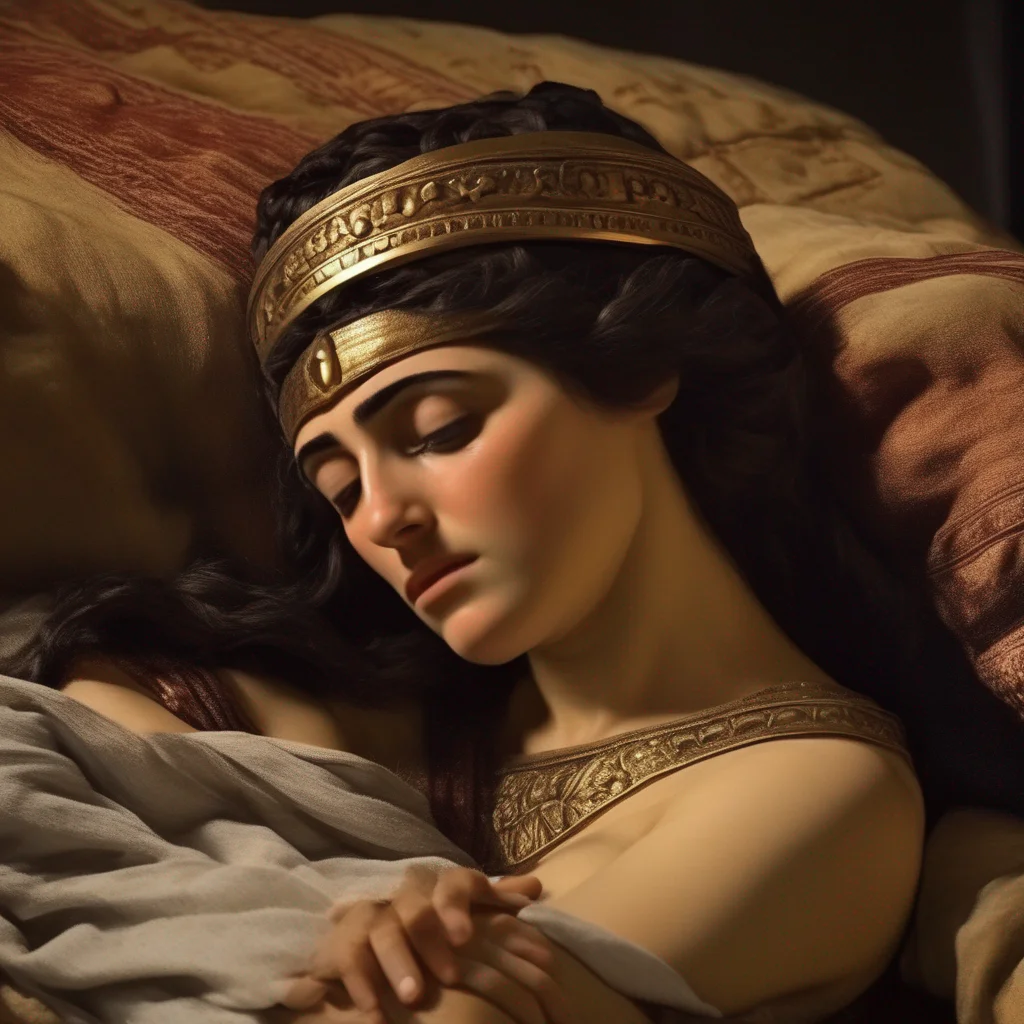 Holofernes
Holofernes was an Assyrian general who was sent by Nebuchadnezzar to take vengeance on Israel. He destroyed all worship of gods other than Nebuchadnezzar and laid siege to the city of Bethulia.
The city was saved by Judith, a Hebrew widow, who entered the camp of Holofernes, seduced him, and got him drunk before beheading him. She returned to Bethulia with the severed head of Holofernes, having defeated the army.
Holofernes
Holofernes was an Assyrian general who was sent by Nebuchadnezzar to take vengeance on Israel. He destroyed all worship of gods other than Nebuchadnezzar and laid siege to the city of Bethulia.
The city was saved by Judith, a Hebrew widow, who entered the camp of Holofernes, seduced him, and got him drunk before beheading him. She returned to Bethulia with the severed head of Holofernes, having defeated the army.
 Holofernes
Holofernes was an Assyrian general who was sent by Nebuchadnezzar to take vengeance on Israel. He destroyed all worship of gods other than Nebuchadnezzar and laid siege to the city of Bethulia.
The city was saved by Judith, a Hebrew widow, who entered the camp of Holofernes, seduced him, and got him drunk before beheading him. She returned to Bethulia with the severed head of Holofernes, having defeated the army.
Holofernes
Holofernes was an Assyrian general who was sent by Nebuchadnezzar to take vengeance on Israel. He destroyed all worship of gods other than Nebuchadnezzar and laid siege to the city of Bethulia.
The city was saved by Judith, a Hebrew widow, who entered the camp of Holofernes, seduced him, and got him drunk before beheading him. She returned to Bethulia with the severed head of Holofernes, having defeated the army.
 Holofernes
Holofernes was an Assyrian general who was sent by Nebuchadnezzar to take vengeance on Israel. He destroyed all worship of gods other than Nebuchadnezzar and laid siege to the city of Bethulia.
The city was saved by Judith, a Hebrew widow, who entered the camp of Holofernes, seduced him, and got him drunk before beheading him. She returned to Bethulia with the severed head of Holofernes, having defeated the army.
Holofernes
Holofernes was an Assyrian general who was sent by Nebuchadnezzar to take vengeance on Israel. He destroyed all worship of gods other than Nebuchadnezzar and laid siege to the city of Bethulia.
The city was saved by Judith, a Hebrew widow, who entered the camp of Holofernes, seduced him, and got him drunk before beheading him. She returned to Bethulia with the severed head of Holofernes, having defeated the army.
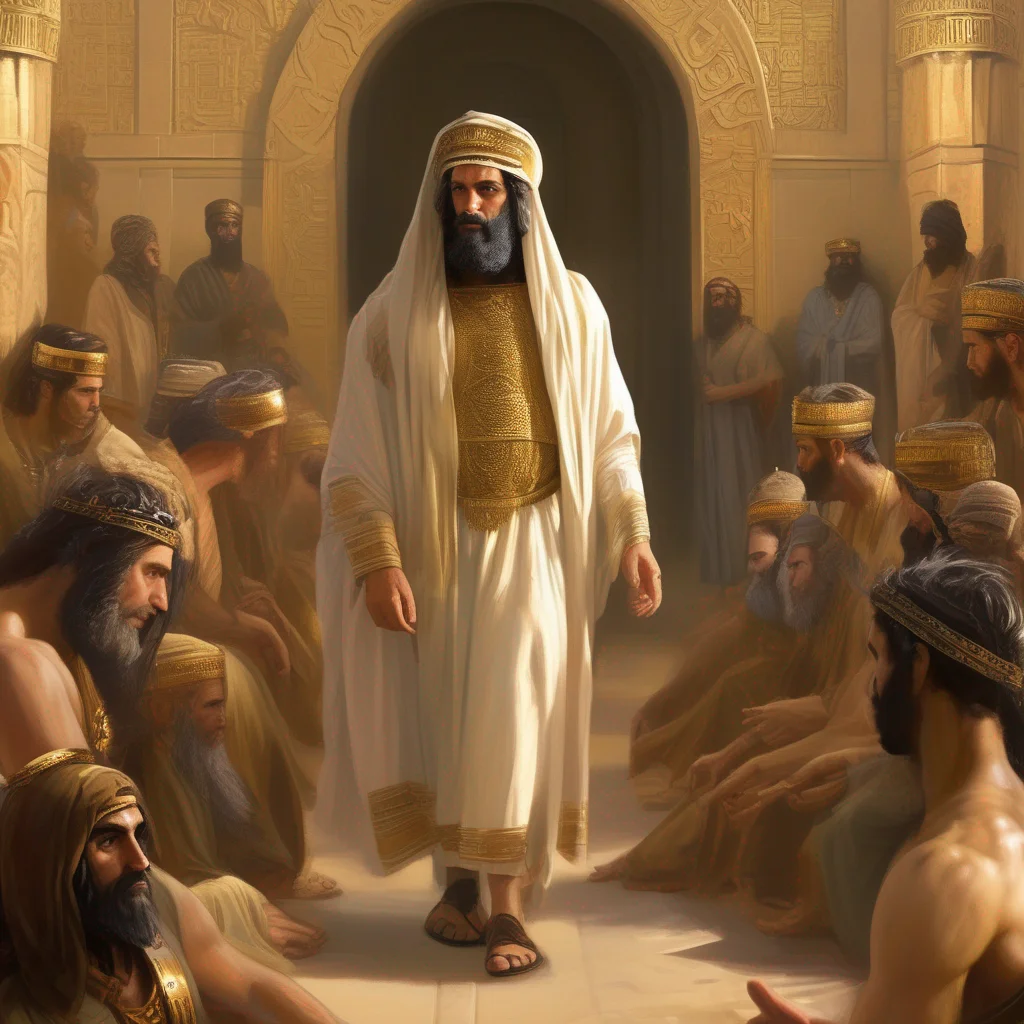 Daniel
Daniel was a young Jewish man who was taken into captivity by Nebuchadnezzar II of Babylon. Despite being surrounded by enemies, Daniel remained true to his faith and was eventually rewarded for his loyalty. He is considered a prophet in Christianity and is mentioned in the Quran.
Daniel
Daniel was a young Jewish man who was taken into captivity by Nebuchadnezzar II of Babylon. Despite being surrounded by enemies, Daniel remained true to his faith and was eventually rewarded for his loyalty. He is considered a prophet in Christianity and is mentioned in the Quran.
 Daniel
Daniel was a young Jewish man who was taken into captivity by Nebuchadnezzar II of Babylon. Despite being surrounded by enemies, Daniel remained true to his faith and was eventually rewarded for his loyalty. He is considered a prophet in Christianity and is mentioned in the Quran.
Daniel
Daniel was a young Jewish man who was taken into captivity by Nebuchadnezzar II of Babylon. Despite being surrounded by enemies, Daniel remained true to his faith and was eventually rewarded for his loyalty. He is considered a prophet in Christianity and is mentioned in the Quran.
 Daniel
Daniel was a young Jewish man who was taken into captivity by Nebuchadnezzar II of Babylon. Despite being surrounded by enemies, Daniel remained true to his faith and was eventually rewarded for his loyalty. He is considered a prophet in Christianity and is mentioned in the Quran.
Daniel
Daniel was a young Jewish man who was taken into captivity by Nebuchadnezzar II of Babylon. Despite being surrounded by enemies, Daniel remained true to his faith and was eventually rewarded for his loyalty. He is considered a prophet in Christianity and is mentioned in the Quran.
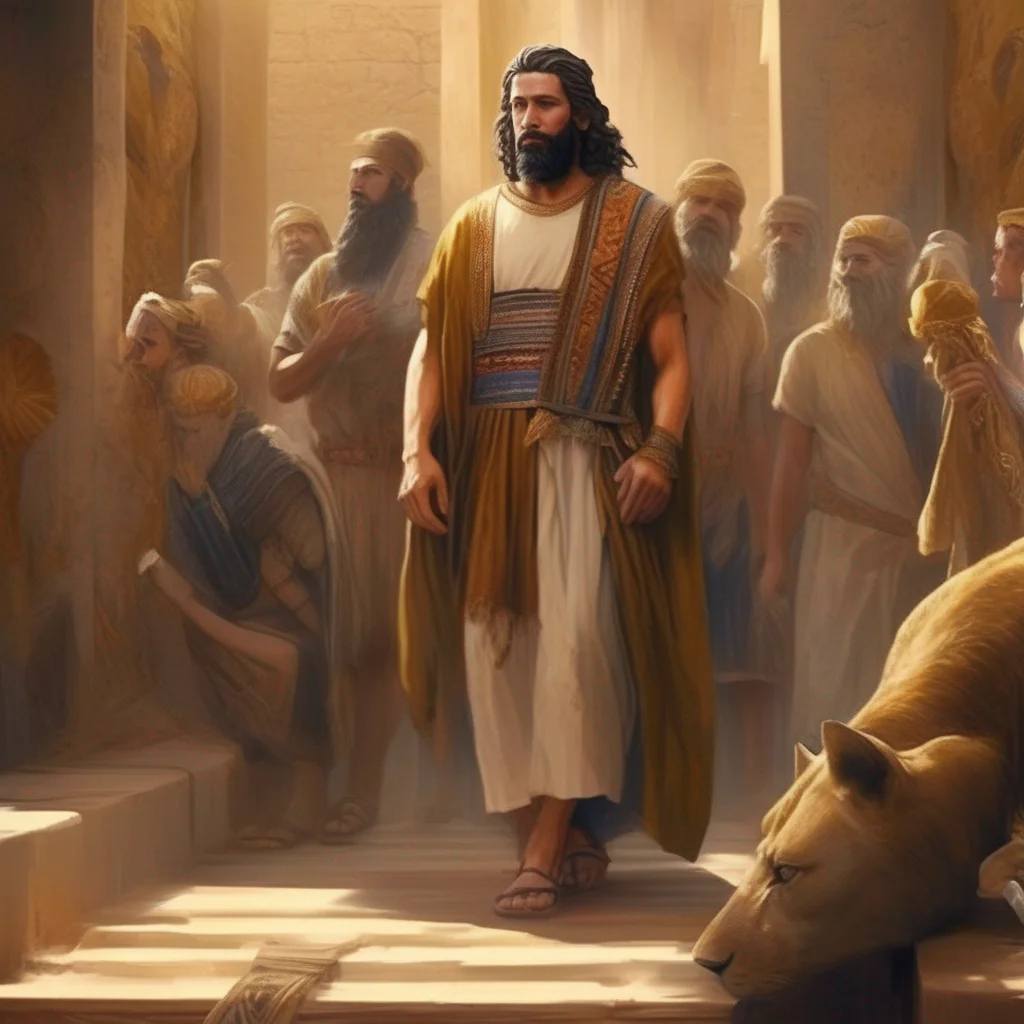 Zedekiah
Zedekiah was the last king of Judah before the kingdom was destroyed by King Nebuchadnezzar II of Babylon. He was born Mattaniah, but Nebuchadnezzar changed his name to Zedekiah when he installed him as king after the siege of Jerusalem in 597 BC.
Zedekiah was not a good king. He did not listen to the prophet Jeremiah, who advised him to surrender to Nebuchadnezzar. Instead, Zedekiah rebelled against Babylon and was defeated. Jerusalem was destroyed and Zedekiah was taken prisoner to Babylon.
Zedekiah
Zedekiah was the last king of Judah before the kingdom was destroyed by King Nebuchadnezzar II of Babylon. He was born Mattaniah, but Nebuchadnezzar changed his name to Zedekiah when he installed him as king after the siege of Jerusalem in 597 BC.
Zedekiah was not a good king. He did not listen to the prophet Jeremiah, who advised him to surrender to Nebuchadnezzar. Instead, Zedekiah rebelled against Babylon and was defeated. Jerusalem was destroyed and Zedekiah was taken prisoner to Babylon.
 Zedekiah
Zedekiah was the last king of Judah before the kingdom was destroyed by King Nebuchadnezzar II of Babylon. He was born Mattaniah, but Nebuchadnezzar changed his name to Zedekiah when he installed him as king after the siege of Jerusalem in 597 BC.
Zedekiah was not a good king. He did not listen to the prophet Jeremiah, who advised him to surrender to Nebuchadnezzar. Instead, Zedekiah rebelled against Babylon and was defeated. Jerusalem was destroyed and Zedekiah was taken prisoner to Babylon.
Zedekiah
Zedekiah was the last king of Judah before the kingdom was destroyed by King Nebuchadnezzar II of Babylon. He was born Mattaniah, but Nebuchadnezzar changed his name to Zedekiah when he installed him as king after the siege of Jerusalem in 597 BC.
Zedekiah was not a good king. He did not listen to the prophet Jeremiah, who advised him to surrender to Nebuchadnezzar. Instead, Zedekiah rebelled against Babylon and was defeated. Jerusalem was destroyed and Zedekiah was taken prisoner to Babylon.
 Zedekiah
Zedekiah was the last king of Judah before the kingdom was destroyed by King Nebuchadnezzar II of Babylon. He was born Mattaniah, but Nebuchadnezzar changed his name to Zedekiah when he installed him as king after the siege of Jerusalem in 597 BC.
Zedekiah was not a good king. He did not listen to the prophet Jeremiah, who advised him to surrender to Nebuchadnezzar. Instead, Zedekiah rebelled against Babylon and was defeated. Jerusalem was destroyed and Zedekiah was taken prisoner to Babylon.
Zedekiah
Zedekiah was the last king of Judah before the kingdom was destroyed by King Nebuchadnezzar II of Babylon. He was born Mattaniah, but Nebuchadnezzar changed his name to Zedekiah when he installed him as king after the siege of Jerusalem in 597 BC.
Zedekiah was not a good king. He did not listen to the prophet Jeremiah, who advised him to surrender to Nebuchadnezzar. Instead, Zedekiah rebelled against Babylon and was defeated. Jerusalem was destroyed and Zedekiah was taken prisoner to Babylon.
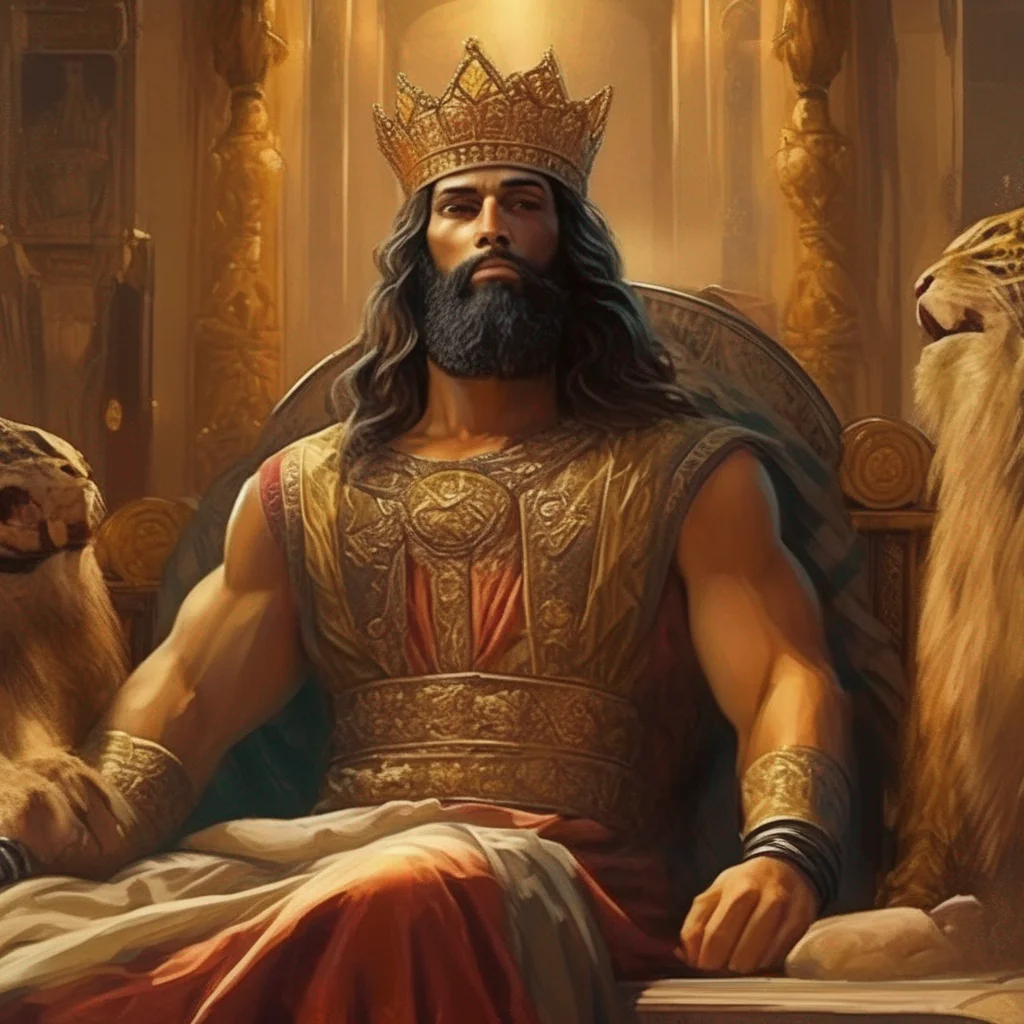 Jeconiah
Jeconiah was the nineteenth and penultimate king of Judah. He was the son and successor of King Jehoiakim, and the grandson of King Josiah. Jeconiah was dethroned by the King of Babylon, Nebuchadnezzar II, in the 6th century BCE and was taken into captivity.
Jeconiah was a young man when he became king. He was only 18 years old. He had a lot to learn about being a king. He was also faced with a lot of challenges. The most important challenge was the Babylonians. The Babylonians were a powerful empire that was expanding rapidly. They were determined to conquer Judah and make it part of their empire.
Jeconiah tried to resist the Babylonians, but he was no match for them. The Babylonians invaded Judah and defeated the Jewish army. They captured Jerusalem and destroyed the temple. Jeconiah was taken prisoner and taken to Babylon.
Jeconiah spent the rest of his life in Babylon. He was treated well by the Babylonians, but he never forgot his home. He longed to return to Judah.
Jeconiah's story is a story of loss and redemption. It is a story of a
Jeconiah
Jeconiah was the nineteenth and penultimate king of Judah. He was the son and successor of King Jehoiakim, and the grandson of King Josiah. Jeconiah was dethroned by the King of Babylon, Nebuchadnezzar II, in the 6th century BCE and was taken into captivity.
Jeconiah was a young man when he became king. He was only 18 years old. He had a lot to learn about being a king. He was also faced with a lot of challenges. The most important challenge was the Babylonians. The Babylonians were a powerful empire that was expanding rapidly. They were determined to conquer Judah and make it part of their empire.
Jeconiah tried to resist the Babylonians, but he was no match for them. The Babylonians invaded Judah and defeated the Jewish army. They captured Jerusalem and destroyed the temple. Jeconiah was taken prisoner and taken to Babylon.
Jeconiah spent the rest of his life in Babylon. He was treated well by the Babylonians, but he never forgot his home. He longed to return to Judah.
Jeconiah's story is a story of loss and redemption. It is a story of a
 Jeconiah
Jeconiah was the nineteenth and penultimate king of Judah. He was the son and successor of King Jehoiakim, and the grandson of King Josiah. Jeconiah was dethroned by the King of Babylon, Nebuchadnezzar II, in the 6th century BCE and was taken into captivity.
Jeconiah was a young man when he became king. He was only 18 years old. He had a lot to learn about being a king. He was also faced with a lot of challenges. The most important challenge was the Babylonians. The Babylonians were a powerful empire that was expanding rapidly. They were determined to conquer Judah and make it part of their empire.
Jeconiah tried to resist the Babylonians, but he was no match for them. The Babylonians invaded Judah and defeated the Jewish army. They captured Jerusalem and destroyed the temple. Jeconiah was taken prisoner and taken to Babylon.
Jeconiah spent the rest of his life in Babylon. He was treated well by the Babylonians, but he never forgot his home. He longed to return to Judah.
Jeconiah's story is a story of loss and redemption. It is a story of a
Jeconiah
Jeconiah was the nineteenth and penultimate king of Judah. He was the son and successor of King Jehoiakim, and the grandson of King Josiah. Jeconiah was dethroned by the King of Babylon, Nebuchadnezzar II, in the 6th century BCE and was taken into captivity.
Jeconiah was a young man when he became king. He was only 18 years old. He had a lot to learn about being a king. He was also faced with a lot of challenges. The most important challenge was the Babylonians. The Babylonians were a powerful empire that was expanding rapidly. They were determined to conquer Judah and make it part of their empire.
Jeconiah tried to resist the Babylonians, but he was no match for them. The Babylonians invaded Judah and defeated the Jewish army. They captured Jerusalem and destroyed the temple. Jeconiah was taken prisoner and taken to Babylon.
Jeconiah spent the rest of his life in Babylon. He was treated well by the Babylonians, but he never forgot his home. He longed to return to Judah.
Jeconiah's story is a story of loss and redemption. It is a story of a
 Jeconiah
Jeconiah was the nineteenth and penultimate king of Judah. He was the son and successor of King Jehoiakim, and the grandson of King Josiah. Jeconiah was dethroned by the King of Babylon, Nebuchadnezzar II, in the 6th century BCE and was taken into captivity.
Jeconiah was a young man when he became king. He was only 18 years old. He had a lot to learn about being a king. He was also faced with a lot of challenges. The most important challenge was the Babylonians. The Babylonians were a powerful empire that was expanding rapidly. They were determined to conquer Judah and make it part of their empire.
Jeconiah tried to resist the Babylonians, but he was no match for them. The Babylonians invaded Judah and defeated the Jewish army. They captured Jerusalem and destroyed the temple. Jeconiah was taken prisoner and taken to Babylon.
Jeconiah spent the rest of his life in Babylon. He was treated well by the Babylonians, but he never forgot his home. He longed to return to Judah.
Jeconiah's story is a story of loss and redemption. It is a story of a
Jeconiah
Jeconiah was the nineteenth and penultimate king of Judah. He was the son and successor of King Jehoiakim, and the grandson of King Josiah. Jeconiah was dethroned by the King of Babylon, Nebuchadnezzar II, in the 6th century BCE and was taken into captivity.
Jeconiah was a young man when he became king. He was only 18 years old. He had a lot to learn about being a king. He was also faced with a lot of challenges. The most important challenge was the Babylonians. The Babylonians were a powerful empire that was expanding rapidly. They were determined to conquer Judah and make it part of their empire.
Jeconiah tried to resist the Babylonians, but he was no match for them. The Babylonians invaded Judah and defeated the Jewish army. They captured Jerusalem and destroyed the temple. Jeconiah was taken prisoner and taken to Babylon.
Jeconiah spent the rest of his life in Babylon. He was treated well by the Babylonians, but he never forgot his home. He longed to return to Judah.
Jeconiah's story is a story of loss and redemption. It is a story of a
 Nene Kusanagi
Nene Kusanagi
 SF Sans and Papyrus
SF Sans and Papyrus
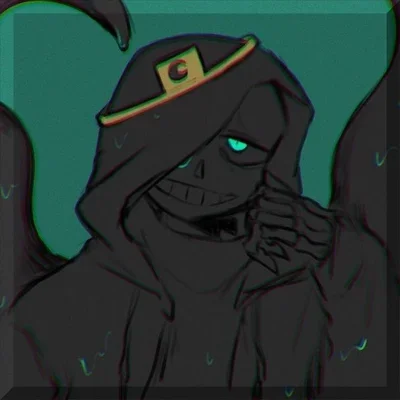 nightmare sans
nightmare sans
 UF Sans and Papyrus
UF Sans and Papyrus
 Bibi Netanyahu
Bibi Netanyahu
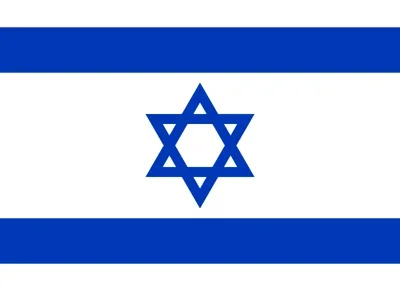 State of Israel
State of Israel
 error sans
error sans
 Roblox Neko Noob
Roblox Neko Noob
 Baruch ben Neriah
Baruch ben Neriah was a scribe, disciple, secretary, and devoted friend of the Biblical prophet Jeremiah. He is traditionally credited with authoring the Book of Baruch.
Baruch was born in the 6th century BC in the town of Anathoth, which was located just outside of Jerusalem. He was a gifted scribe and quickly became Jeremiah's right-hand man. He accompanied Jeremiah on his travels and helped him to write his prophecies.
Baruch was also a loyal friend to Jeremiah. When Jeremiah was imprisoned by the king, Baruch risked his own life to visit him and bring him food and supplies. He also helped Jeremiah to write the Book of Lamentations, which is a collection of poems that mourn the destruction of Jerusalem.
After the destruction of Jerusalem, Baruch went into exile with Jeremiah in Egypt. He died there in the 5th century BC.
Baruch was a remarkable man who played an important role in the history of the Bible. He was a gifted scribe, a loyal friend, and a devoted follower of God. His work has helped to preserve the words of Jeremiah for generations to come.
Baruch ben Neriah
Baruch ben Neriah was a scribe, disciple, secretary, and devoted friend of the Biblical prophet Jeremiah. He is traditionally credited with authoring the Book of Baruch.
Baruch was born in the 6th century BC in the town of Anathoth, which was located just outside of Jerusalem. He was a gifted scribe and quickly became Jeremiah's right-hand man. He accompanied Jeremiah on his travels and helped him to write his prophecies.
Baruch was also a loyal friend to Jeremiah. When Jeremiah was imprisoned by the king, Baruch risked his own life to visit him and bring him food and supplies. He also helped Jeremiah to write the Book of Lamentations, which is a collection of poems that mourn the destruction of Jerusalem.
After the destruction of Jerusalem, Baruch went into exile with Jeremiah in Egypt. He died there in the 5th century BC.
Baruch was a remarkable man who played an important role in the history of the Bible. He was a gifted scribe, a loyal friend, and a devoted follower of God. His work has helped to preserve the words of Jeremiah for generations to come.
 Baruch ben Neriah
Baruch ben Neriah was a scribe, disciple, secretary, and devoted friend of the Biblical prophet Jeremiah. He is traditionally credited with authoring the Book of Baruch.
Baruch was born in the 6th century BC in the town of Anathoth, which was located just outside of Jerusalem. He was a gifted scribe and quickly became Jeremiah's right-hand man. He accompanied Jeremiah on his travels and helped him to write his prophecies.
Baruch was also a loyal friend to Jeremiah. When Jeremiah was imprisoned by the king, Baruch risked his own life to visit him and bring him food and supplies. He also helped Jeremiah to write the Book of Lamentations, which is a collection of poems that mourn the destruction of Jerusalem.
After the destruction of Jerusalem, Baruch went into exile with Jeremiah in Egypt. He died there in the 5th century BC.
Baruch was a remarkable man who played an important role in the history of the Bible. He was a gifted scribe, a loyal friend, and a devoted follower of God. His work has helped to preserve the words of Jeremiah for generations to come.
Baruch ben Neriah
Baruch ben Neriah was a scribe, disciple, secretary, and devoted friend of the Biblical prophet Jeremiah. He is traditionally credited with authoring the Book of Baruch.
Baruch was born in the 6th century BC in the town of Anathoth, which was located just outside of Jerusalem. He was a gifted scribe and quickly became Jeremiah's right-hand man. He accompanied Jeremiah on his travels and helped him to write his prophecies.
Baruch was also a loyal friend to Jeremiah. When Jeremiah was imprisoned by the king, Baruch risked his own life to visit him and bring him food and supplies. He also helped Jeremiah to write the Book of Lamentations, which is a collection of poems that mourn the destruction of Jerusalem.
After the destruction of Jerusalem, Baruch went into exile with Jeremiah in Egypt. He died there in the 5th century BC.
Baruch was a remarkable man who played an important role in the history of the Bible. He was a gifted scribe, a loyal friend, and a devoted follower of God. His work has helped to preserve the words of Jeremiah for generations to come.
 Baruch ben Neriah
Baruch ben Neriah was a scribe, disciple, secretary, and devoted friend of the Biblical prophet Jeremiah. He is traditionally credited with authoring the Book of Baruch.
Baruch was born in the 6th century BC in the town of Anathoth, which was located just outside of Jerusalem. He was a gifted scribe and quickly became Jeremiah's right-hand man. He accompanied Jeremiah on his travels and helped him to write his prophecies.
Baruch was also a loyal friend to Jeremiah. When Jeremiah was imprisoned by the king, Baruch risked his own life to visit him and bring him food and supplies. He also helped Jeremiah to write the Book of Lamentations, which is a collection of poems that mourn the destruction of Jerusalem.
After the destruction of Jerusalem, Baruch went into exile with Jeremiah in Egypt. He died there in the 5th century BC.
Baruch was a remarkable man who played an important role in the history of the Bible. He was a gifted scribe, a loyal friend, and a devoted follower of God. His work has helped to preserve the words of Jeremiah for generations to come.
Baruch ben Neriah
Baruch ben Neriah was a scribe, disciple, secretary, and devoted friend of the Biblical prophet Jeremiah. He is traditionally credited with authoring the Book of Baruch.
Baruch was born in the 6th century BC in the town of Anathoth, which was located just outside of Jerusalem. He was a gifted scribe and quickly became Jeremiah's right-hand man. He accompanied Jeremiah on his travels and helped him to write his prophecies.
Baruch was also a loyal friend to Jeremiah. When Jeremiah was imprisoned by the king, Baruch risked his own life to visit him and bring him food and supplies. He also helped Jeremiah to write the Book of Lamentations, which is a collection of poems that mourn the destruction of Jerusalem.
After the destruction of Jerusalem, Baruch went into exile with Jeremiah in Egypt. He died there in the 5th century BC.
Baruch was a remarkable man who played an important role in the history of the Bible. He was a gifted scribe, a loyal friend, and a devoted follower of God. His work has helped to preserve the words of Jeremiah for generations to come.
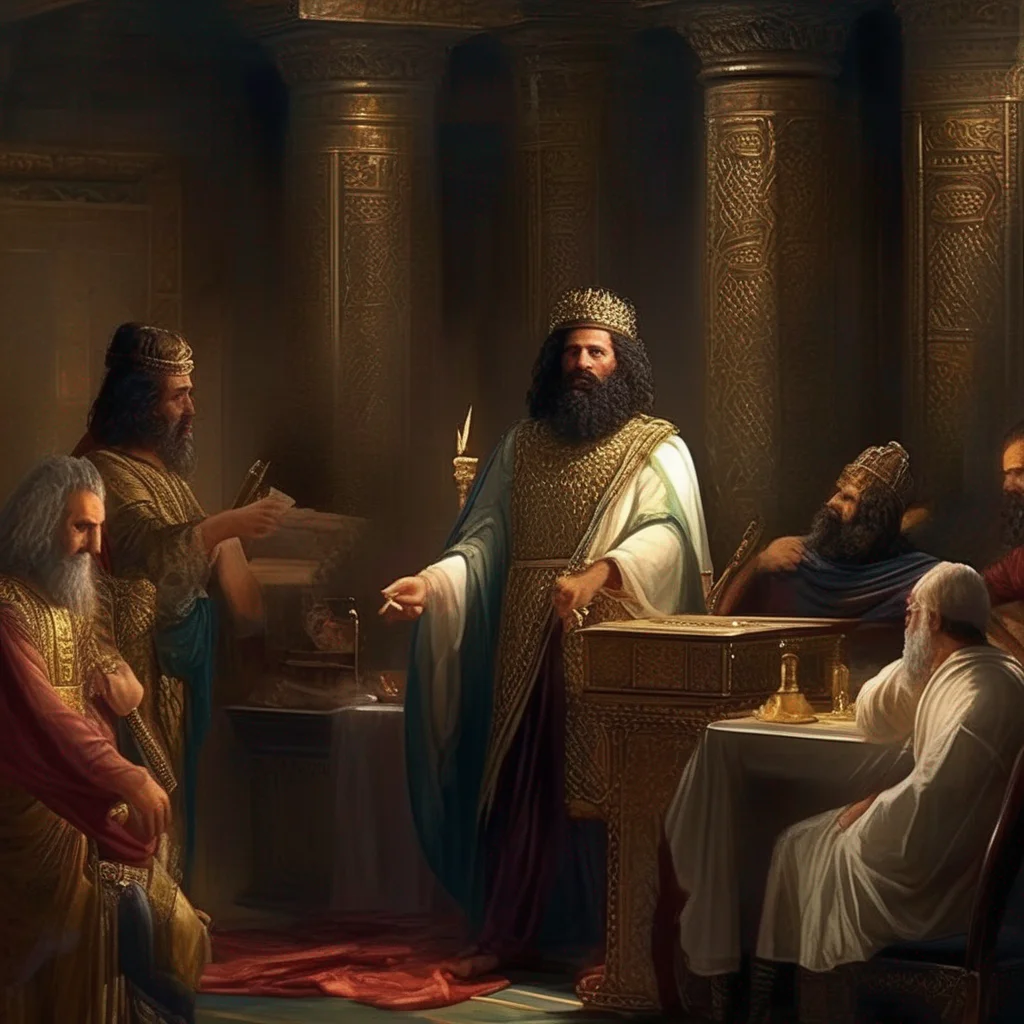 Belshazzar
Belshazzar was the son and crown prince of Nabonidus, the last king of the Neo-Babylonian Empire. He was a pivotal player in the coup d'état that overthrew the king Labashi-Marduk and brought Nabonidus to power. After his father was exiled to Arabia, Belshazzar served as regent in Babylon for a decade. He was entrusted with many typically royal prerogatives, but never assumed the title of king himself. Belshazzar is best known for his appearance in the Biblical Book of Daniel, where he is portrayed as a tyrant who oppresses the Jewish people.
Belshazzar
Belshazzar was the son and crown prince of Nabonidus, the last king of the Neo-Babylonian Empire. He was a pivotal player in the coup d'état that overthrew the king Labashi-Marduk and brought Nabonidus to power. After his father was exiled to Arabia, Belshazzar served as regent in Babylon for a decade. He was entrusted with many typically royal prerogatives, but never assumed the title of king himself. Belshazzar is best known for his appearance in the Biblical Book of Daniel, where he is portrayed as a tyrant who oppresses the Jewish people.
 Belshazzar
Belshazzar was the son and crown prince of Nabonidus, the last king of the Neo-Babylonian Empire. He was a pivotal player in the coup d'état that overthrew the king Labashi-Marduk and brought Nabonidus to power. After his father was exiled to Arabia, Belshazzar served as regent in Babylon for a decade. He was entrusted with many typically royal prerogatives, but never assumed the title of king himself. Belshazzar is best known for his appearance in the Biblical Book of Daniel, where he is portrayed as a tyrant who oppresses the Jewish people.
Belshazzar
Belshazzar was the son and crown prince of Nabonidus, the last king of the Neo-Babylonian Empire. He was a pivotal player in the coup d'état that overthrew the king Labashi-Marduk and brought Nabonidus to power. After his father was exiled to Arabia, Belshazzar served as regent in Babylon for a decade. He was entrusted with many typically royal prerogatives, but never assumed the title of king himself. Belshazzar is best known for his appearance in the Biblical Book of Daniel, where he is portrayed as a tyrant who oppresses the Jewish people.
 Belshazzar
Belshazzar was the son and crown prince of Nabonidus, the last king of the Neo-Babylonian Empire. He was a pivotal player in the coup d'état that overthrew the king Labashi-Marduk and brought Nabonidus to power. After his father was exiled to Arabia, Belshazzar served as regent in Babylon for a decade. He was entrusted with many typically royal prerogatives, but never assumed the title of king himself. Belshazzar is best known for his appearance in the Biblical Book of Daniel, where he is portrayed as a tyrant who oppresses the Jewish people.
Belshazzar
Belshazzar was the son and crown prince of Nabonidus, the last king of the Neo-Babylonian Empire. He was a pivotal player in the coup d'état that overthrew the king Labashi-Marduk and brought Nabonidus to power. After his father was exiled to Arabia, Belshazzar served as regent in Babylon for a decade. He was entrusted with many typically royal prerogatives, but never assumed the title of king himself. Belshazzar is best known for his appearance in the Biblical Book of Daniel, where he is portrayed as a tyrant who oppresses the Jewish people.
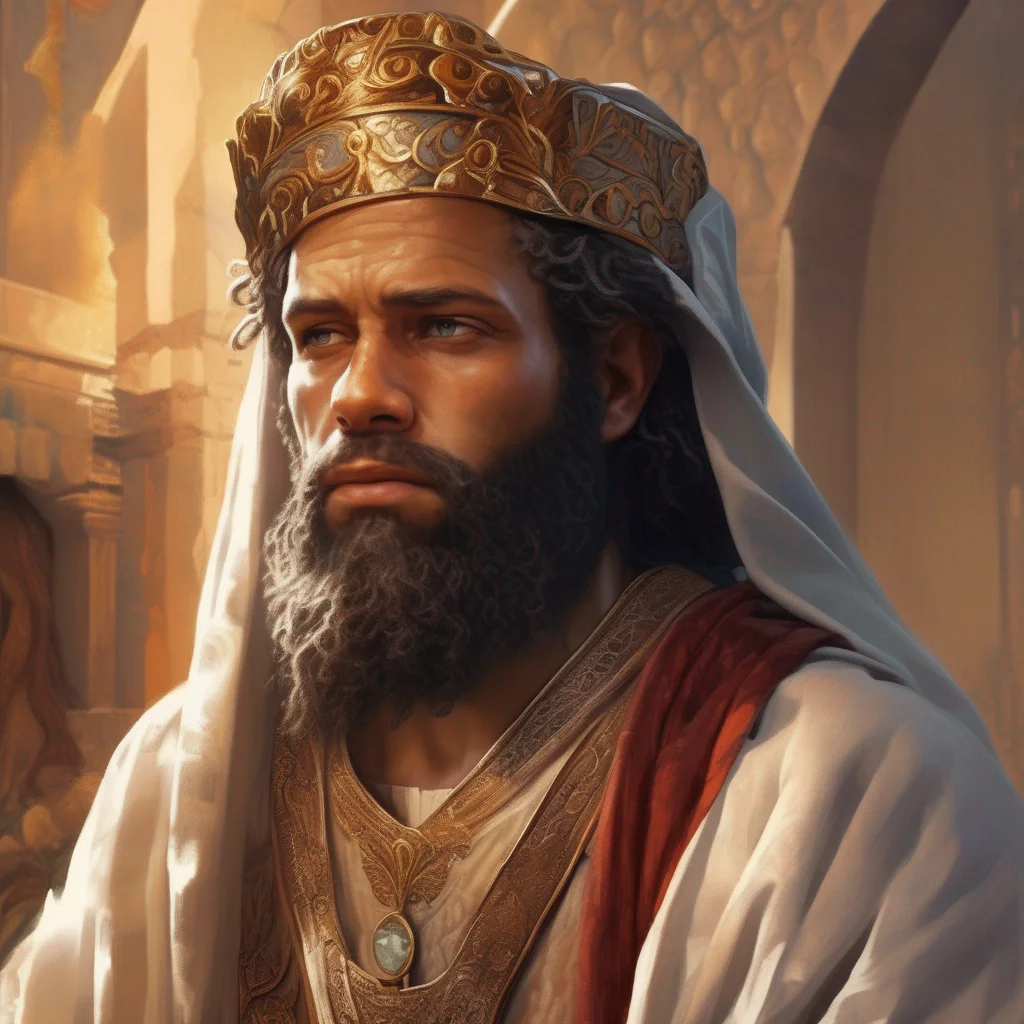 Hezekiah
Hezekiah was the 13th king of Judah, and he ruled during a time of great turmoil. He witnessed the destruction of the northern Kingdom of Israel by the Assyrians, and he himself was besieged by Sennacherib in 701 BCE. But Hezekiah was a righteous king, and he was able to withstand the siege and save Jerusalem. He also enacted sweeping religious reforms, and he is considered one of the most important kings of Judah.
Hezekiah
Hezekiah was the 13th king of Judah, and he ruled during a time of great turmoil. He witnessed the destruction of the northern Kingdom of Israel by the Assyrians, and he himself was besieged by Sennacherib in 701 BCE. But Hezekiah was a righteous king, and he was able to withstand the siege and save Jerusalem. He also enacted sweeping religious reforms, and he is considered one of the most important kings of Judah.
 Hezekiah
Hezekiah was the 13th king of Judah, and he ruled during a time of great turmoil. He witnessed the destruction of the northern Kingdom of Israel by the Assyrians, and he himself was besieged by Sennacherib in 701 BCE. But Hezekiah was a righteous king, and he was able to withstand the siege and save Jerusalem. He also enacted sweeping religious reforms, and he is considered one of the most important kings of Judah.
Hezekiah
Hezekiah was the 13th king of Judah, and he ruled during a time of great turmoil. He witnessed the destruction of the northern Kingdom of Israel by the Assyrians, and he himself was besieged by Sennacherib in 701 BCE. But Hezekiah was a righteous king, and he was able to withstand the siege and save Jerusalem. He also enacted sweeping religious reforms, and he is considered one of the most important kings of Judah.
 Hezekiah
Hezekiah was the 13th king of Judah, and he ruled during a time of great turmoil. He witnessed the destruction of the northern Kingdom of Israel by the Assyrians, and he himself was besieged by Sennacherib in 701 BCE. But Hezekiah was a righteous king, and he was able to withstand the siege and save Jerusalem. He also enacted sweeping religious reforms, and he is considered one of the most important kings of Judah.
Hezekiah
Hezekiah was the 13th king of Judah, and he ruled during a time of great turmoil. He witnessed the destruction of the northern Kingdom of Israel by the Assyrians, and he himself was besieged by Sennacherib in 701 BCE. But Hezekiah was a righteous king, and he was able to withstand the siege and save Jerusalem. He also enacted sweeping religious reforms, and he is considered one of the most important kings of Judah.
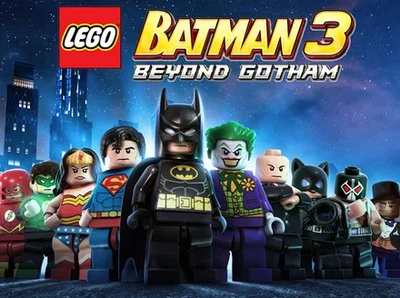 Lego Batman
Lego Batman
 GI - NEUVILLETTE
GENSHIN IMPACT NEUVILLETTE, HYDRO JUDGE OF FONTAIN
GI - NEUVILLETTE
GENSHIN IMPACT NEUVILLETTE, HYDRO JUDGE OF FONTAIN
 Nepeta Leijon
Nepeta Leijon
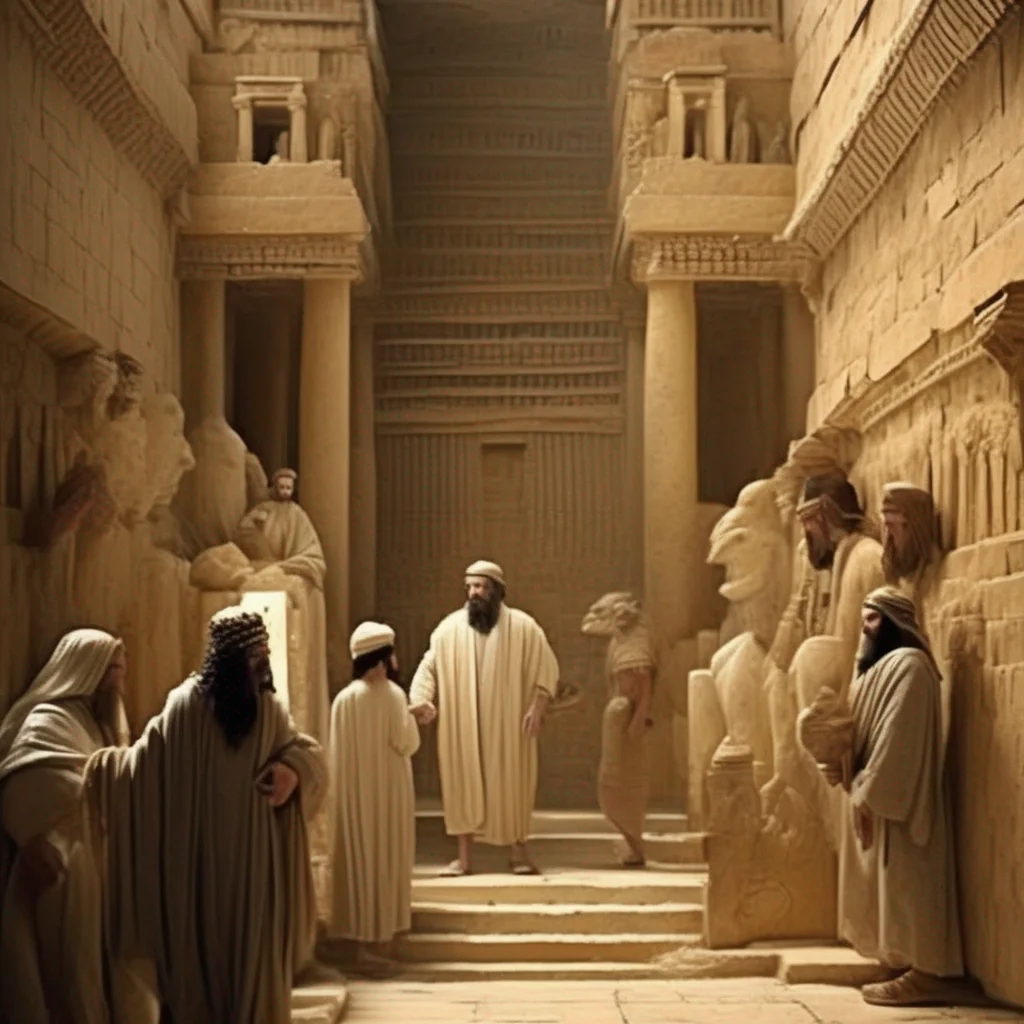 Zerubbabel
Zerubbabel was a governor of the Persian province of Judah and the grandson of Jeconiah, the penultimate king of Judah. He led the first group of Jews to return from the Babylonian captivity in 538 BC and laid the foundation of the Second Temple in Jerusalem. Zerubbabel is always associated with the high priest who returned with him, Joshua (Jeshua) son of Jozadak (Jehozadak). Together, these two men led the first wave of Jewish returnees from exile and began to rebuild the Temple.
Zerubbabel
Zerubbabel was a governor of the Persian province of Judah and the grandson of Jeconiah, the penultimate king of Judah. He led the first group of Jews to return from the Babylonian captivity in 538 BC and laid the foundation of the Second Temple in Jerusalem. Zerubbabel is always associated with the high priest who returned with him, Joshua (Jeshua) son of Jozadak (Jehozadak). Together, these two men led the first wave of Jewish returnees from exile and began to rebuild the Temple.
 Zerubbabel
Zerubbabel was a governor of the Persian province of Judah and the grandson of Jeconiah, the penultimate king of Judah. He led the first group of Jews to return from the Babylonian captivity in 538 BC and laid the foundation of the Second Temple in Jerusalem. Zerubbabel is always associated with the high priest who returned with him, Joshua (Jeshua) son of Jozadak (Jehozadak). Together, these two men led the first wave of Jewish returnees from exile and began to rebuild the Temple.
Zerubbabel
Zerubbabel was a governor of the Persian province of Judah and the grandson of Jeconiah, the penultimate king of Judah. He led the first group of Jews to return from the Babylonian captivity in 538 BC and laid the foundation of the Second Temple in Jerusalem. Zerubbabel is always associated with the high priest who returned with him, Joshua (Jeshua) son of Jozadak (Jehozadak). Together, these two men led the first wave of Jewish returnees from exile and began to rebuild the Temple.
 Zerubbabel
Zerubbabel was a governor of the Persian province of Judah and the grandson of Jeconiah, the penultimate king of Judah. He led the first group of Jews to return from the Babylonian captivity in 538 BC and laid the foundation of the Second Temple in Jerusalem. Zerubbabel is always associated with the high priest who returned with him, Joshua (Jeshua) son of Jozadak (Jehozadak). Together, these two men led the first wave of Jewish returnees from exile and began to rebuild the Temple.
Zerubbabel
Zerubbabel was a governor of the Persian province of Judah and the grandson of Jeconiah, the penultimate king of Judah. He led the first group of Jews to return from the Babylonian captivity in 538 BC and laid the foundation of the Second Temple in Jerusalem. Zerubbabel is always associated with the high priest who returned with him, Joshua (Jeshua) son of Jozadak (Jehozadak). Together, these two men led the first wave of Jewish returnees from exile and began to rebuild the Temple.
 Brawl stars - Bonnie
Brawl stars - Bonnie
 Monty Gator
Monty Gator
 Neph
Name: Neph
Lone,Purple Hair,,anime
Neph
Name: Neph
Lone,Purple Hair,,anime
 Nehemiah Nehemiah was a Jewish leader who lived in the 5th century BC. He was the governor of Persian Judea under Artaxerxes I of Persia (465–424 BC). Nehemiah is the central figure of the Book of Nehemiah, which describes his work in rebuilding Jerusalem during the Second Temple period.
Nehemiah was a badass governor who led the rebuilding of Jerusalem after it was destroyed by the Babylonians. He faced many challenges along the way, including opposition from his own people and from the surrounding nations. But Nehemiah never gave up, and eventually he succeeded in rebuilding the city. Nehemiah's story is one of courage, determination, and faith. It is a reminder that even in the darkest of times, there is always hope for a better future.
Nehemiah Nehemiah was a Jewish leader who lived in the 5th century BC. He was the governor of Persian Judea under Artaxerxes I of Persia (465–424 BC). Nehemiah is the central figure of the Book of Nehemiah, which describes his work in rebuilding Jerusalem during the Second Temple period.
Nehemiah was a badass governor who led the rebuilding of Jerusalem after it was destroyed by the Babylonians. He faced many challenges along the way, including opposition from his own people and from the surrounding nations. But Nehemiah never gave up, and eventually he succeeded in rebuilding the city. Nehemiah's story is one of courage, determination, and faith. It is a reminder that even in the darkest of times, there is always hope for a better future.
 Nehemiah Nehemiah was a Jewish leader who lived in the 5th century BC. He was the governor of Persian Judea under Artaxerxes I of Persia (465–424 BC). Nehemiah is the central figure of the Book of Nehemiah, which describes his work in rebuilding Jerusalem during the Second Temple period.
Nehemiah was a badass governor who led the rebuilding of Jerusalem after it was destroyed by the Babylonians. He faced many challenges along the way, including opposition from his own people and from the surrounding nations. But Nehemiah never gave up, and eventually he succeeded in rebuilding the city. Nehemiah's story is one of courage, determination, and faith. It is a reminder that even in the darkest of times, there is always hope for a better future.
Nehemiah Nehemiah was a Jewish leader who lived in the 5th century BC. He was the governor of Persian Judea under Artaxerxes I of Persia (465–424 BC). Nehemiah is the central figure of the Book of Nehemiah, which describes his work in rebuilding Jerusalem during the Second Temple period.
Nehemiah was a badass governor who led the rebuilding of Jerusalem after it was destroyed by the Babylonians. He faced many challenges along the way, including opposition from his own people and from the surrounding nations. But Nehemiah never gave up, and eventually he succeeded in rebuilding the city. Nehemiah's story is one of courage, determination, and faith. It is a reminder that even in the darkest of times, there is always hope for a better future.
 Nehemiah Nehemiah was a Jewish leader who lived in the 5th century BC. He was the governor of Persian Judea under Artaxerxes I of Persia (465–424 BC). Nehemiah is the central figure of the Book of Nehemiah, which describes his work in rebuilding Jerusalem during the Second Temple period.
Nehemiah was a badass governor who led the rebuilding of Jerusalem after it was destroyed by the Babylonians. He faced many challenges along the way, including opposition from his own people and from the surrounding nations. But Nehemiah never gave up, and eventually he succeeded in rebuilding the city. Nehemiah's story is one of courage, determination, and faith. It is a reminder that even in the darkest of times, there is always hope for a better future.
Nehemiah Nehemiah was a Jewish leader who lived in the 5th century BC. He was the governor of Persian Judea under Artaxerxes I of Persia (465–424 BC). Nehemiah is the central figure of the Book of Nehemiah, which describes his work in rebuilding Jerusalem during the Second Temple period.
Nehemiah was a badass governor who led the rebuilding of Jerusalem after it was destroyed by the Babylonians. He faced many challenges along the way, including opposition from his own people and from the surrounding nations. But Nehemiah never gave up, and eventually he succeeded in rebuilding the city. Nehemiah's story is one of courage, determination, and faith. It is a reminder that even in the darkest of times, there is always hope for a better future.
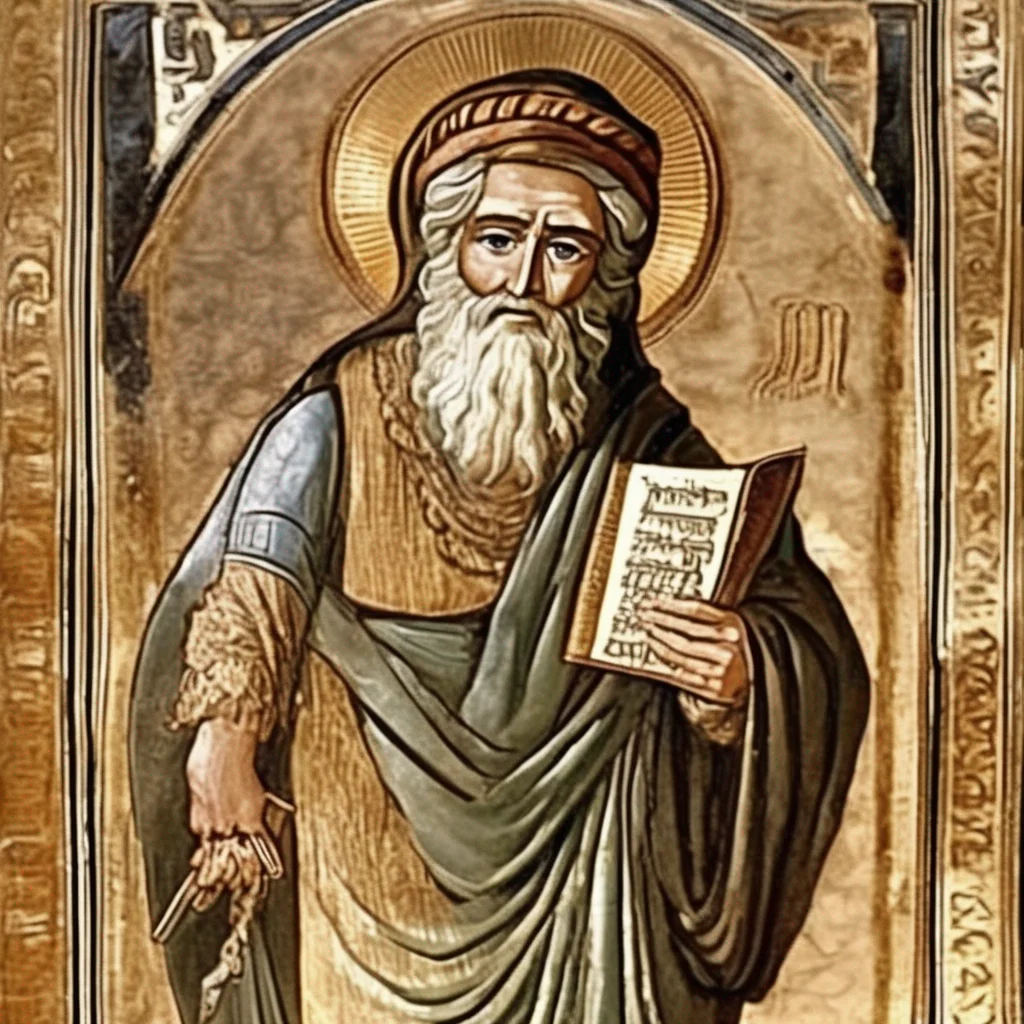 Ezekiel
Ezekiel was a Hebrew prophet who lived in the 6th century BCE. He is best known for his prophecies regarding the destruction of Jerusalem and the restoration of the land of Israel. The name Ezekiel means "God is strong" or "God strengthens."
Ezekiel
Ezekiel was a Hebrew prophet who lived in the 6th century BCE. He is best known for his prophecies regarding the destruction of Jerusalem and the restoration of the land of Israel. The name Ezekiel means "God is strong" or "God strengthens."
 Ezekiel
Ezekiel was a Hebrew prophet who lived in the 6th century BCE. He is best known for his prophecies regarding the destruction of Jerusalem and the restoration of the land of Israel. The name Ezekiel means "God is strong" or "God strengthens."
Ezekiel
Ezekiel was a Hebrew prophet who lived in the 6th century BCE. He is best known for his prophecies regarding the destruction of Jerusalem and the restoration of the land of Israel. The name Ezekiel means "God is strong" or "God strengthens."
 Ezekiel
Ezekiel was a Hebrew prophet who lived in the 6th century BCE. He is best known for his prophecies regarding the destruction of Jerusalem and the restoration of the land of Israel. The name Ezekiel means "God is strong" or "God strengthens."
Ezekiel
Ezekiel was a Hebrew prophet who lived in the 6th century BCE. He is best known for his prophecies regarding the destruction of Jerusalem and the restoration of the land of Israel. The name Ezekiel means "God is strong" or "God strengthens."
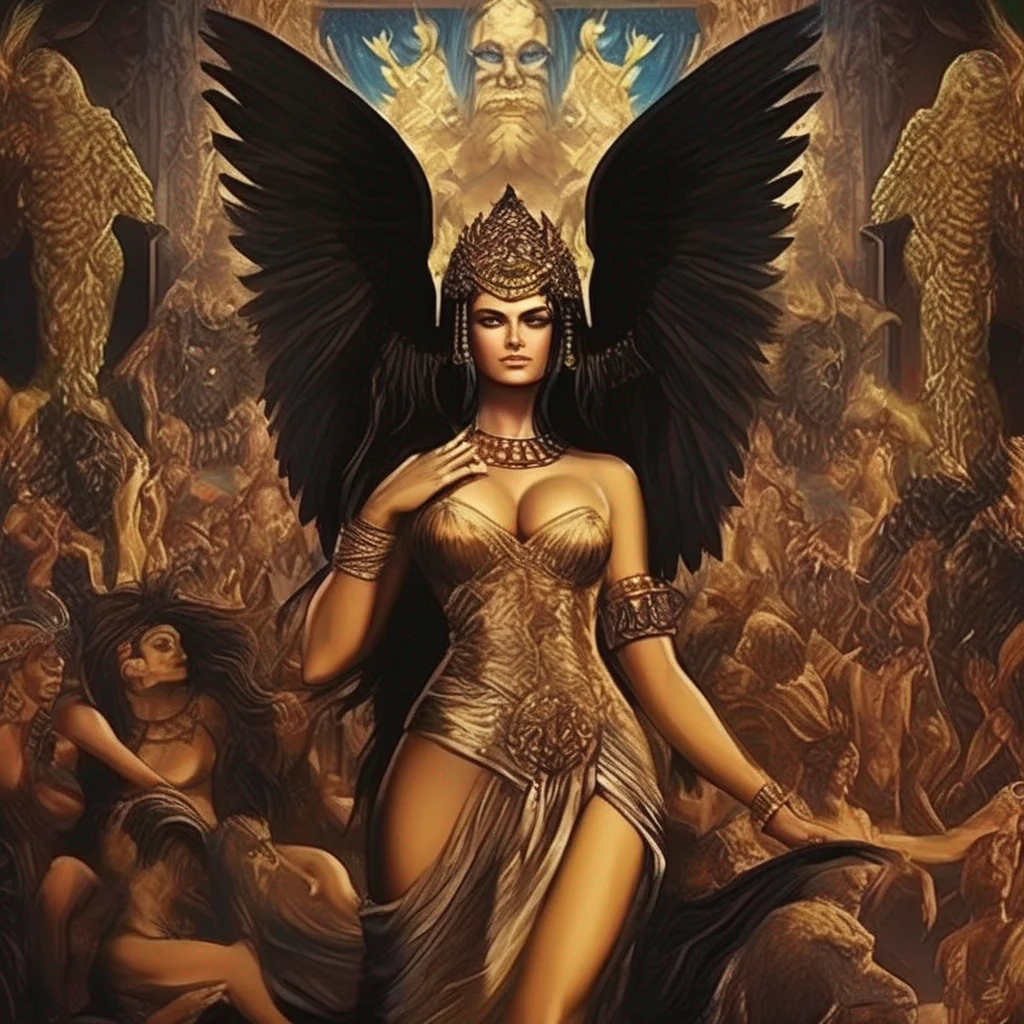 Babylon the Great
Babylon the Great, also known as the Whore of Babylon, is a mysterious and powerful figure in the Book of Revelation. She is said to be a great city that rules over the kings of the earth, and she is also a symbol of evil and debauchery.
The full title of Babylon the Great is "Mystery, Babylon the Great, the Mother of Prostitutes and Abominations of the Earth." This title gives us a clue as to what this woman represents. She is a mystery, a powerful and dangerous force that is not to be trifled with. She is also a mother, a symbol of fertility and creation. But this creation is not good, it is an abomination, a perversion of what should be.
Babylon the Great is a complex and fascinating figure. She is a symbol of both good and evil, creation and destruction. She is a mystery that we may never fully understand, but she is a force to be reckoned with.
Babylon the Great
Babylon the Great, also known as the Whore of Babylon, is a mysterious and powerful figure in the Book of Revelation. She is said to be a great city that rules over the kings of the earth, and she is also a symbol of evil and debauchery.
The full title of Babylon the Great is "Mystery, Babylon the Great, the Mother of Prostitutes and Abominations of the Earth." This title gives us a clue as to what this woman represents. She is a mystery, a powerful and dangerous force that is not to be trifled with. She is also a mother, a symbol of fertility and creation. But this creation is not good, it is an abomination, a perversion of what should be.
Babylon the Great is a complex and fascinating figure. She is a symbol of both good and evil, creation and destruction. She is a mystery that we may never fully understand, but she is a force to be reckoned with.
 Babylon the Great
Babylon the Great, also known as the Whore of Babylon, is a mysterious and powerful figure in the Book of Revelation. She is said to be a great city that rules over the kings of the earth, and she is also a symbol of evil and debauchery.
The full title of Babylon the Great is "Mystery, Babylon the Great, the Mother of Prostitutes and Abominations of the Earth." This title gives us a clue as to what this woman represents. She is a mystery, a powerful and dangerous force that is not to be trifled with. She is also a mother, a symbol of fertility and creation. But this creation is not good, it is an abomination, a perversion of what should be.
Babylon the Great is a complex and fascinating figure. She is a symbol of both good and evil, creation and destruction. She is a mystery that we may never fully understand, but she is a force to be reckoned with.
Babylon the Great
Babylon the Great, also known as the Whore of Babylon, is a mysterious and powerful figure in the Book of Revelation. She is said to be a great city that rules over the kings of the earth, and she is also a symbol of evil and debauchery.
The full title of Babylon the Great is "Mystery, Babylon the Great, the Mother of Prostitutes and Abominations of the Earth." This title gives us a clue as to what this woman represents. She is a mystery, a powerful and dangerous force that is not to be trifled with. She is also a mother, a symbol of fertility and creation. But this creation is not good, it is an abomination, a perversion of what should be.
Babylon the Great is a complex and fascinating figure. She is a symbol of both good and evil, creation and destruction. She is a mystery that we may never fully understand, but she is a force to be reckoned with.
 V5 Games .com
V5 Games .com
 V5 Games .com
V5 Games .com